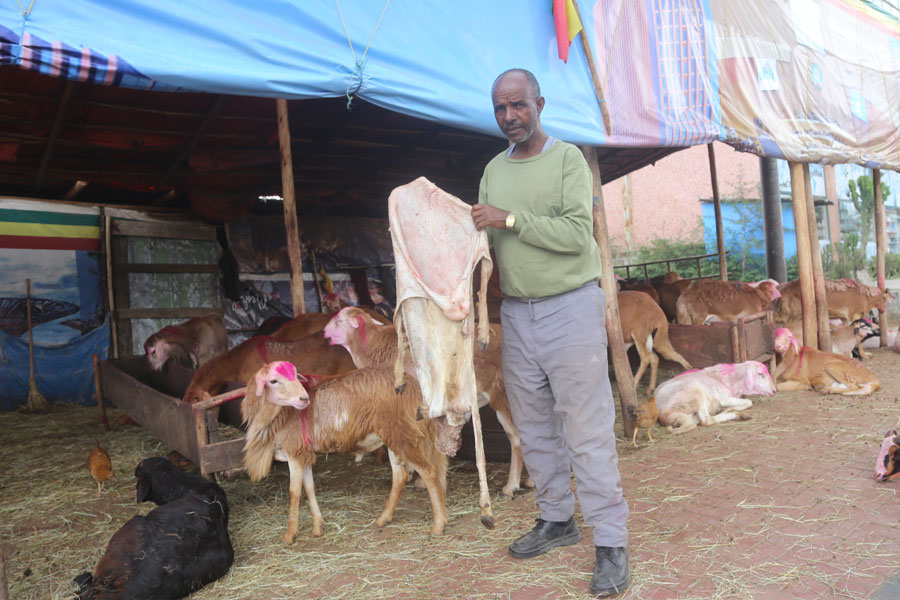
Viewpoints | Feb 13,2024
Jul 10 , 2020
By Tibebu Bekele
True hegemony is dominating the ideas marketplace, which is more difficult than fighting one’s way to Arat Kilo. It demands a more patient game. But it is the only sustainable answer to the problem that is refusing to go away, writes Tibebu Bekele (tibebu@gmail.com), who is interested in constructive dialogue and civil engagement.
Social reengineering is a complex enterprise. It hardly ever goes the way it is envisioned. Often, once started, it can take a life of its own and the end result can not be precisely determined from the outset. The best its originators can hope for is that it achieves the general purpose they envisioned though it may not end up to be an exact replica of their vision.
What successive young people in Ethiopia have been trying to bring about since the 1960s is nothing short of a total social transformation of an old traditional polity into a modern nation state. Though different factions within the umbrella of what is generally referred to as ‘the student movement’ held slightly differing visions in the details of what they wanted the country to become, for the most part, they shared the same general goals of equality and progress.
Where they differed is how and how fast to get there. The way they elevated this non-fundamental difference to a bitter animosity that caused devastation to so many families is a historical blunder of epic proportions. Most comrades at one time or another turned into bitter enemies.
There was a saying that gained currency in the '80s that most political factions and liberation movements of the time were fighting over who is the more ardent communist and they would take the flag of one party with a hammer and sickle insignia only to replace it with a bigger one.
What is the root problem then?
That is the million-dollar question, and there probably is no simple answer. It is a vexing problem that unfortunately is becoming an inter-generational curse. It certainly requires a more detailed study and a wider discussion with diverse opinions. But there are two obvious handicaps that are easily discernible that can help to be conversation starters.
The first is that there is yet to be born a movement that has true faith in democracy in the Ethiopian political scene. Oh Yes! They all pay lip service to democracy. Most even have it in their names. But none truly believe in it. Nor do they practice it.
Most manifestos of these movements are full of a list of ‘enemies’ to start with. The jargon is full of the ‘enemy of the people’, ‘anti peace elements’ and ‘anti revolutionaries’. In other words, those who have a different worldview from us are the enemy that has to be destroyed by any means necessary, not an idea that has to be contested.
This dogmatic devotion to ideological purity and the demonisation of all others as the devil incarnate, as well as the self-anointing of one’s movement as the spokesperson for the ‘people’ is the antithesis to democracy. The political class needs to attain enough maturity to realise that they are not the ‘people’, that the citizens out there in the real world far off from the ivory towers and the television studios, if given a voice and the opportunity to make their own choices, are wise enough to choose those with the ideas that best work for them.
And should they make a wrong choice in one misguided election, they can correct it in the next. Alas! They have never been given enough respect in this country to date to be the final arbiters of those who will represent them. Until this paternalistic attitude changes, the desired social transformation cannot happen in any meaningful way. That is why successive governments that have come and gone have failed to sustain changes that outlive their time in office.
Perhaps flowing logically out of this fundamental fallacy between theory and practice comes the second problem – the lack of a long game. Political movements aiming for the lofty goal of seismic social transformation and a reordering of the governance structure of a country should have the proportional strategic patience to have their ideas take root. We reap what we sow, but not overnight.
It is wrong to equate the acquisition of power with victory. The true victor is the one whose ideas become the dominant school of thought in the country. The crowning achievement of a political movement is winning hearts and minds, not necessarily seats of power. True hegemony is dominating the ideas marketplace, which is more difficult than fighting one’s way to Arat Kilo. It demands a more patient game. But it is the only sustainable answer to the problem that is refusing to go away.
There is no short cut. It is about time the political elite in this country emancipate themselves from the crushing urgency of the now and develop the patient long game of winning hearts and minds. Impatience can be an obstacle to progress. In fact, it can lead to regression. Revolution is not always the answer. When it comes to social re-engineering, evolution may yield better results in the long run.
PUBLISHED ON
Jul 10,2020 [ VOL
21 , NO
1054]


My Opinion | Dec 19,2020

Fortune News | Nov 21,2020

Commentaries | Aug 21,2021

Editorial | Sep 30,2023

Agenda | Jan 13,2024

Photo Gallery | 178296 Views | May 06,2019

Photo Gallery | 168501 Views | Apr 26,2019

Photo Gallery | 159281 Views | Oct 06,2021

My Opinion | 137061 Views | Aug 14,2021
Commentaries | Oct 25,2025

Dec 22 , 2024 . By TIZITA SHEWAFERAW
Charged with transforming colossal state-owned enterprises into modern and competitiv...

Aug 18 , 2024 . By AKSAH ITALO
Although predictable Yonas Zerihun's job in the ride-hailing service is not immune to...

Jul 28 , 2024 . By TIZITA SHEWAFERAW
Unhabitual, perhaps too many, Samuel Gebreyohannes, 38, used to occasionally enjoy a couple of beers at breakfast. However, he recently swit...

Jul 13 , 2024 . By AKSAH ITALO
Investors who rely on tractors, trucks, and field vehicles for commuting, transporting commodities, and f...

Oct 25 , 2025
The regulatory machinery is on overdrive. In only two years, no fewer than 35 new pro...

Oct 18 , 2025
The political establishment, notably the ruling party and its top brass, has become p...

Oct 11 , 2025
Ladislas Farago, a roving Associated Press (AP) correspondent, arrived in Ethiopia in...

Oct 4 , 2025
Eyob Tekalegn (PhD) had been in the Governor's chair for only weeks when, on Septembe...

Oct 25 , 2025 . By YITBAREK GETACHEW
Officials of the Addis Abeba's Education Bureau have embarked on an ambitious experim...

Oct 26 , 2025 . By YITBAREK GETACHEW
The federal government is making a landmark shift in its investment incentive regime...

Oct 29 , 2025 . By NAHOM AYELE
The National Bank of Ethiopia (NBE) is preparing to issue a directive that will funda...

Oct 26 , 2025 . By SURAFEL MULUGETA
A community of booksellers shadowing the Ethiopian National Theatre has been jolted b...